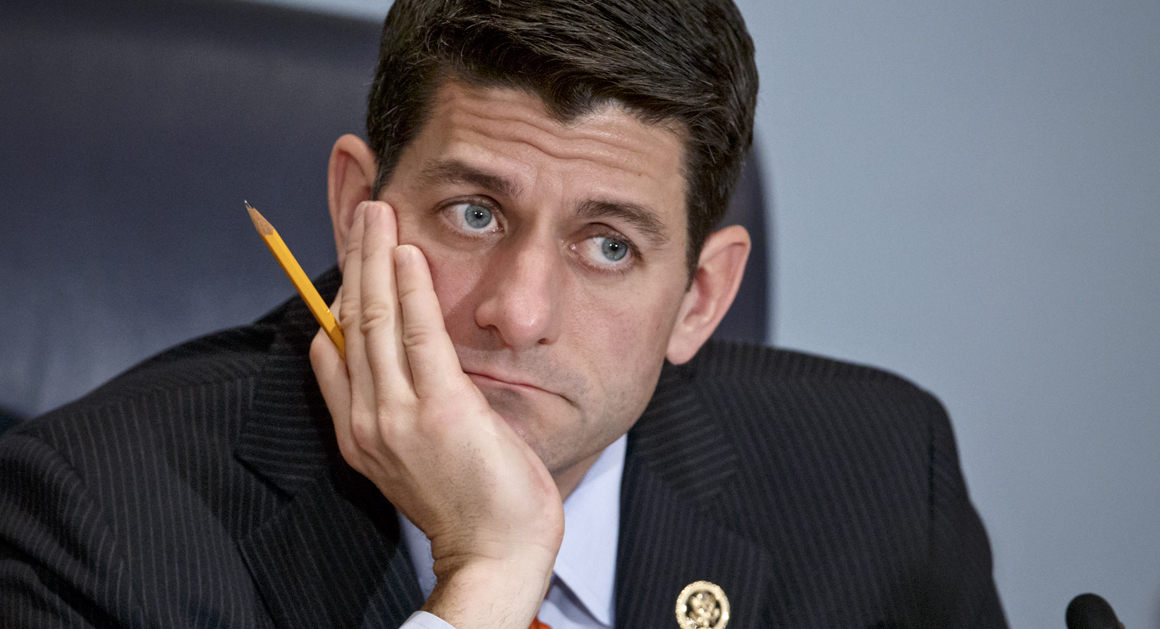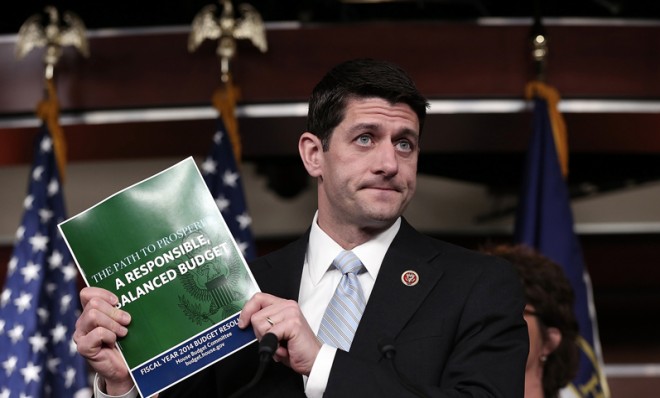By Ashton Jones
In the year of Donald Trump, there is one person who has been left out of the conversation: House Speaker Paul Ryan. Certainly, Ryan has been asked, repeatedly, about Trump’s actions throughout the primaries and now the general election, but these questions are rarely about Ryan’s polices; and so in a sense, Ryan has been sidelined by Trump’s election “strategy.” Yet this article is, surprisingly, not about Trump. It is simply about Ryan, or more specifically, how Ryan’s philosophical background influences his policy-making decisions. And so, although it will be difficult to ignore, the current election must be sidelined, if only for a moment.
But why is it important to look at Ryan’s chosen philosophy? Consider this: No matter if Hillary Clinton or Trump win this November, it will be Ryan who has a secured position in the government. Naturally, a Republican win would greatly benefit his chosen polices more than if Clinton and her fellow Democrats win the presidency and take control of the Senate. But regardless of the outcome this November, Ryan’s party has a strong grip on the House of Representatives and as a result, it is unlikely to flip anytime soon. As of now, it can be safely assumed that Ryan will be in power for some time. Therefore, it is useful to understand Ryan’s chosen philosophy, since it will undoubtedly impact the political discourse for years to come.
Philosophically, Ryan is a conundrum. He is a follower of Ayn Rand’s infamous philosophy of objectivism, an ideology that combines conservative monetary policy and some liberal social polices; but Ryan does not view himself as a Randian, a rigid follower of objectivism. To note, Ryan has openly praised Ayn Rand and her philosophy on multiple occasions. So after in 2005 he told the prominent objectivist organization, The Atlas Society, “the reason I got involved in public service, by and large, if I had to credit one thinker, one person, it would be Ayn Rand”, it should not have been surprising to anybody that in a 2012 New Yorker interview, Ryan argued that objectivism defined his life meaning in public and private affairs.
For simplicity’s sake, objectivism can be summed up in one scandalous word: selfishness. Rand even compiled a book of essays with her once long-time lover, National Brandon, titled The Virtue of Selfishness. Although it could be argued that equating objectivism with “selfishness” is an oversimplification, the pursuit to define “rational selfishness,”[i] as Rand liked to quantify it, was always the end goal.
No book better epitomizes this belief than Rand’s magnum opus, “Atlas Shrugged,” a book which “inspired” Ryan “so much that it’s required reading in my office for all my interns and my staff.” “Atlas Shrugged” is a much-debated and extremely controversial novel, which despite its length (typically published with more than a thousand pages) can be mostly summarized in two sections: Francisco d’Anconia’s “speech on money,” and John Galt’s sixty-four-page speech on objectivism.
Francisco’s speech infamously argues that money is a value of worth, and that any income tax (or really any tax imposed instead of willingly donated) is theft by the society at large. Yes, money is a literal measure of a person’s worth to Objectivists. In direct reference to this speech, Paul Ryan stated that “[I] always go back to, you know, Francisco d’Anconia’s speech, at Bill Taggart’s wedding, on money when I think about monetary policy.” Equally, John Galt’s speech, which is arguably the most important chapter that Rand ever wrote in relation to her philosophy, argues at length that humanity must be “rationally selfish.” This idea has substantially influenced Ryan’s belief in creating a society that upholds the individual over the majority.
So how has this directly affected Ryan’s polices? Before he became Speaker, Ryan was just an up-and-coming representative, who happened to be chosen as the running-mate for the 2012 Republican presidential ticket with Mitt Romney. During this election, Ryan and his fellow Republicans released a budget that would come to define both the Romney campaign and, more importantly, Ryan himself: The Path to Prosperity.
Beyond having one of the most effective marketing names for a typically mind-numbing budget proposal, the plan laid out a series of ideas that Ryan drew greatly from objectivist ideology. Over the years, he laid out new revisions of the “path,” but each version was held up by one principle: slashing government spending by more than five-trillion dollars through the elimination of “socialists’ programs” like Medicare and Medicaid. The cornerstone policy would be to eliminate the Affordable Care Act, also known as Obamacare. This in turn would allow large tax cuts on the wealthy, but raise taxes on the middle and lower classes.
To those acquainted with conservative policies, The Path to Prosperity might seem not particularly objectivist. In a strict sense, such critics are correct, but it is undeniable that objectivism has had an impact on Ryan policies. Objectivism, in short, has caused a substantial difference on how Ryan views these changes. To the typical conservative, the plan represents taking control of fiscal policy by limiting “socialist programs;” yet to an objectivist, massive government programs are a philosophical nightmare.
As noted earlier, Objectivists believe that taxes are theft, especially when they provide for the needs of the society at large.[ii] So, if Ryan truly does believe in an objectivist viewpoint, then tax cuts for the wealthy are a sign of the affluent class’ societal worth in comparison to less wealthy individuals. This is a fact that cannot be ignored.
However, knowing this principle on taxes, Ryan is contradicting his own chosen philosophy by proposing to increase taxes on the lower and middle classes. Firstly, his policy not only violates Rand’s belief against mandatory taxation,[iii] but also causes the middle and lower classes to be enlisted in more “government theft” than the wealthy classes. His tax plan forces the non-wealthy classes to sacrifice monetary funds so that the wealthy classes may keep more of their funds. This is something that Rand vehemently argued against.[iv] Therefore, if Ryan truly wishes to implement objectivist ideology in law, he must understand that Rand, the creator of his chosen philosophy, would be against him.
Today, Ryan is siting on-top of his political throne; nobody has a clear picture on how Ryan will wield this power, but we can make a theoretical guess on what he will do given his objectivist viewpoint. Ryan will likely continue to push for the elimination of Obamacare and other public safety nets. Under a Trump presidency, such program eliminations would be fairly easy to pass; it is also likely that some features of his budget would be passed as well. It may not end in a full elimination of social programs, but it easily could result in a limitation of their powers. It is only a matter of time, however, given his secure position, that some of his proposals will be implemented into law through political compromises. Until then, however, Ryan will just have to dream an objectivist dream.
_________________________________
[i] The phrase can be found in the introduction to Rand’s The Virtue of Selfishness. To Rand, “rational selfishness” essentially means that each human must uphold his or her survival above anybody else’s, including their own children or family. This position can be reversed, but only if the person can be rationally selfish in believing that the child or family member is needed to truly live or be happy; yet they could never die for that person because that would go against being selfish. Basically, you cannot be happy if you are dead. Hence you must be rational about your own desires, thus the phrase “rational selfishness.”
[ii] See Francisco d’Anconina’s speech on Money for more information.
[iii] Ibid Chapter Seven.
[iv] This idea can be found in mostly any work by Rand, but Rand’s essay, “The Objectivist Ethics”, in “The Virtue of Selfness” outlines it best.


